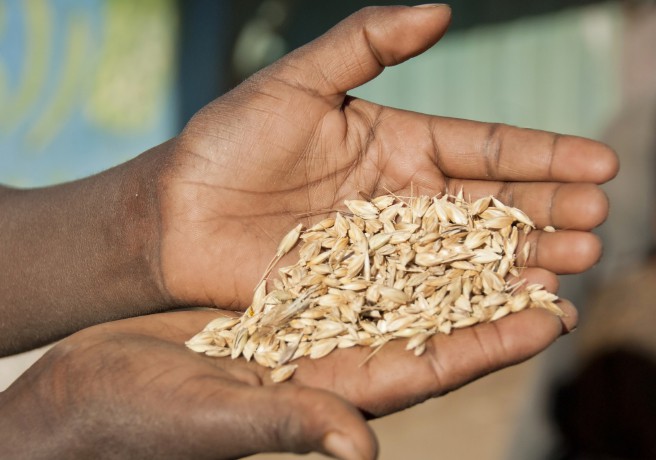Increasing food security and economic resilience in southern Africa
For decades, smallholder farmers in Zambia and Mozambique lacked adequate storage facilities for their harvested produce and, as a result, suffered losses of up to 30 percent.
This contributed to the overall food and nutrition insecurity in the region. With funding from the U.S. Agency for International Development, the Southern African Trade Hub (SATH) program has established a web-based receipt system as part of its work to increase intra-regional trade, food security, and international competitiveness for farmers.
Award-winning innovation
The warehouse receipt system (WRS), piloted in Zambia and Mozambique, offers smallholder farmers the opportunity to store produce and avoid selling it all at harvest time when prices are at their lowest. Following the successful pilot in Mozambique and, as the result of a new regulatory regime, it was also rolled out in Zambia.
The storage facilities use a web-based application that integrates commodity receipting systems with the payment of the supplier. It provides a record-keeping application to analyse data, and enables financiers to pay the supplier accurately and on time for goods delivered, supporting the maximization of production and revenues for farmers.
The receipt system application is Oracle based and was joint winner of the global Oracle Sustainability Innovation Award for 2015.
The benefits
By securing the best prices for farmers, the WRS creates an incentive to increase production which in turn helps improve food security and increases overall wealth. Professional warehouse facilities also enable smallholder farmers to sell their crops in a central location which increases the time they have to farm and ensures that stock losses are minimal. This will help build a more sustainable future for farmers and improve the overall state of nutrition in these countries.
Streamlining operations, the WRS also helps to forecast potential stockpiles and improve distribution. The sales process is more efficient too, making it easier for potential buyers to see the quality and quantity of what is available. The economic security achieved through the WRS reduces the need for farmers to rely on other sources of income such as charcoal creation by cutting trees, preventing deforestation.
The potential
The WRS has the potential to be introduced into other developing nations to improve food security and economic resilience. Each system can be easily adapted to reflect the local needs of the smallholder farmers. AECOM is implementing the SATH program.








